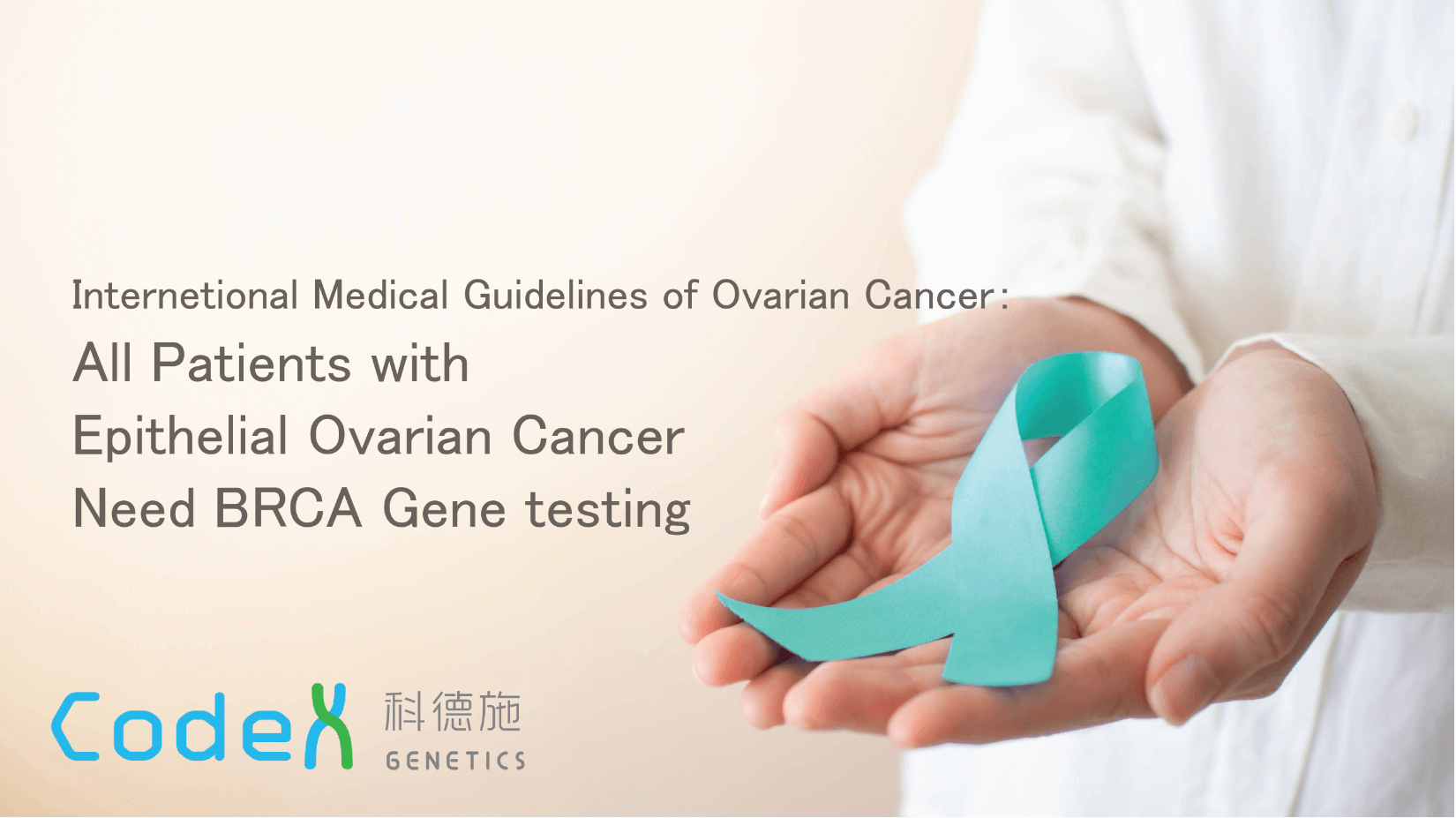Heredity of Ovarian Cancer
The common pathogenic genes of ovarian cancer are BRCA1 and BRCA2, and
about 10-15% of ovarian cancers are caused by genetic mutations. The
presence of a genetic mutation related to ovarian cancer does not
necessitate ovarian cancer. However, the lifetime risk of developing
ovarian cancer for those with related genetic mutations is 50 times
higher than those without, and there is a 50% chance of this genetic
mutation being inherited by the next generation. Those tested with a
high genetic risk of ovarian cancer should therefore start ovarian
cancer screening tests as soon as possible and in more frequent
intervals. This is such that ovarian cancer can be detected at an early
stage of onset, which will increase effectiveness of treatment
interventions.
Is There A Need for Genetic Testing Even After Being Diagnosed with
Ovarian Cancer? American Society of Clinical Oncology Suggests All
Patients with Epithelial Ovarian Cancer Need BRCA Gene Testing
According to ovarian cancer guidelines issued by the American Society of
Clinical Oncology in February 2020, all individuals diagnosed with
epithelial ovarian cancer should undergo BRCA1/2 genetic testing,
regardless of whether they have a family history of ovarian cancer. The
guidelines state that genetic testing for those with ovarian cancer can
aid in assembling prognostic information and facilitate better treatment
options for the individual. Further analysis of genetic information will
also help reveal whether the individual’s family members have the risk
of carrying such genetic mutations.
Although many medical societies around the world recommend that women
with ovarian cancer undergo genetic testing, only about 30% of women
with ovarian cancer do so. It is the hope that the implementation of
these medical guidelines will ensure that all patients with ovarian
cancer can receive the best possible care, not just for themselves, but
also for the sake of their families and future generations.
What should an individual do if in possession of an ovarian cancer
gene mutation?
Being a carrier of ovarian-cancer-related gene mutations means that the
individual will have a higher risk of developing ovarian cancer than the
average person. According to the recommendations of the Cancer Expert
Working Group (CEWG) from the Centre for Health Protection of the
Department of Health in the Hong Kong Government, women at general risk
do not need to be screened if they do not have symptoms of ovarian
cancer; on the other hand, women who are at high genetic risk of ovarian
cancer should consider seeking additional medical advice to evaluate
their course of action regarding possibly developing ovarian cancer, be
it a formal diagnosis, further genetic testing, or regular screening
needs.











